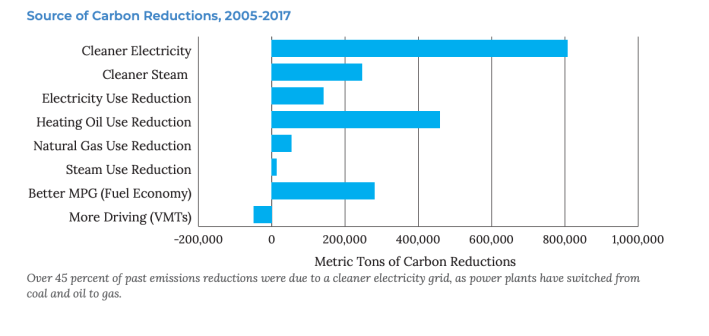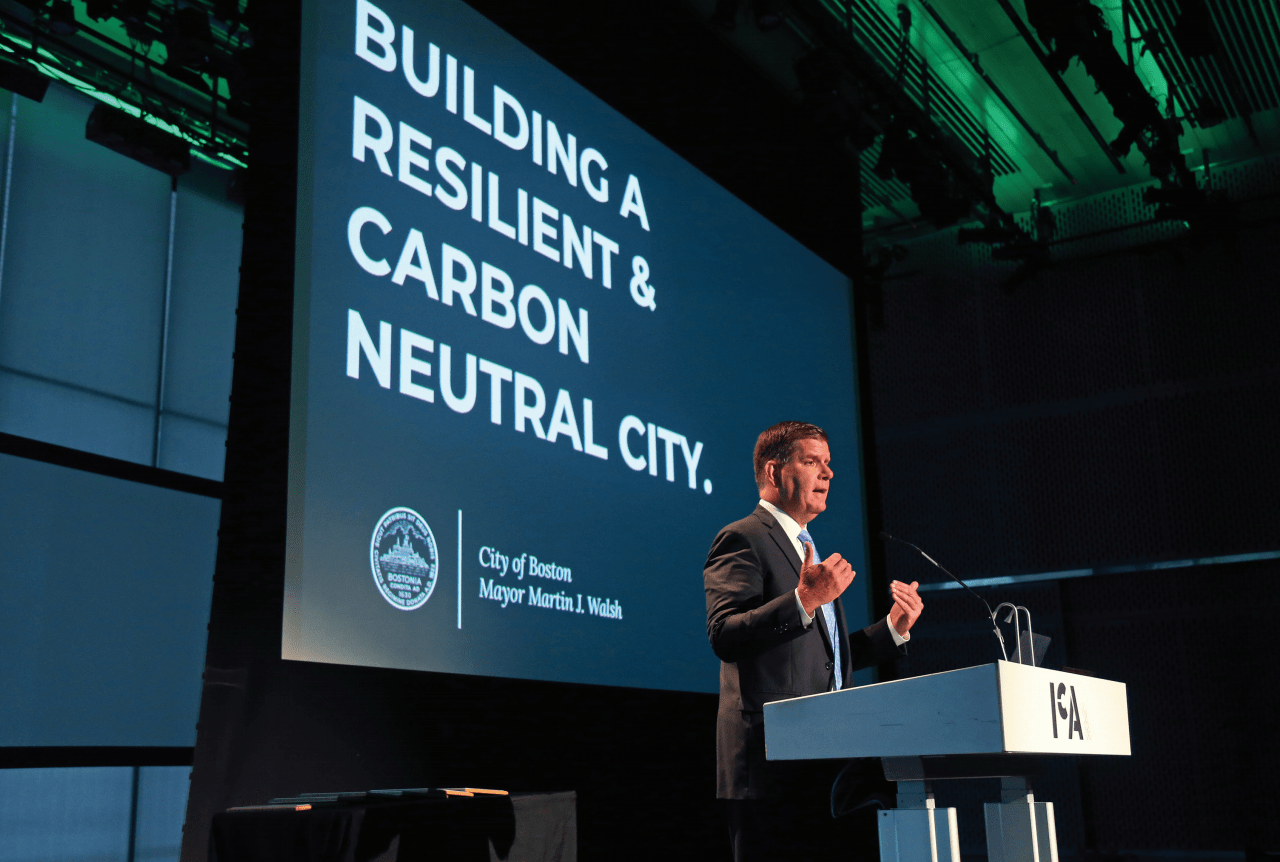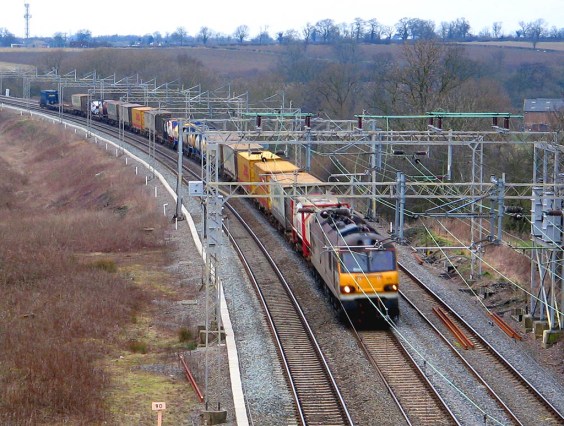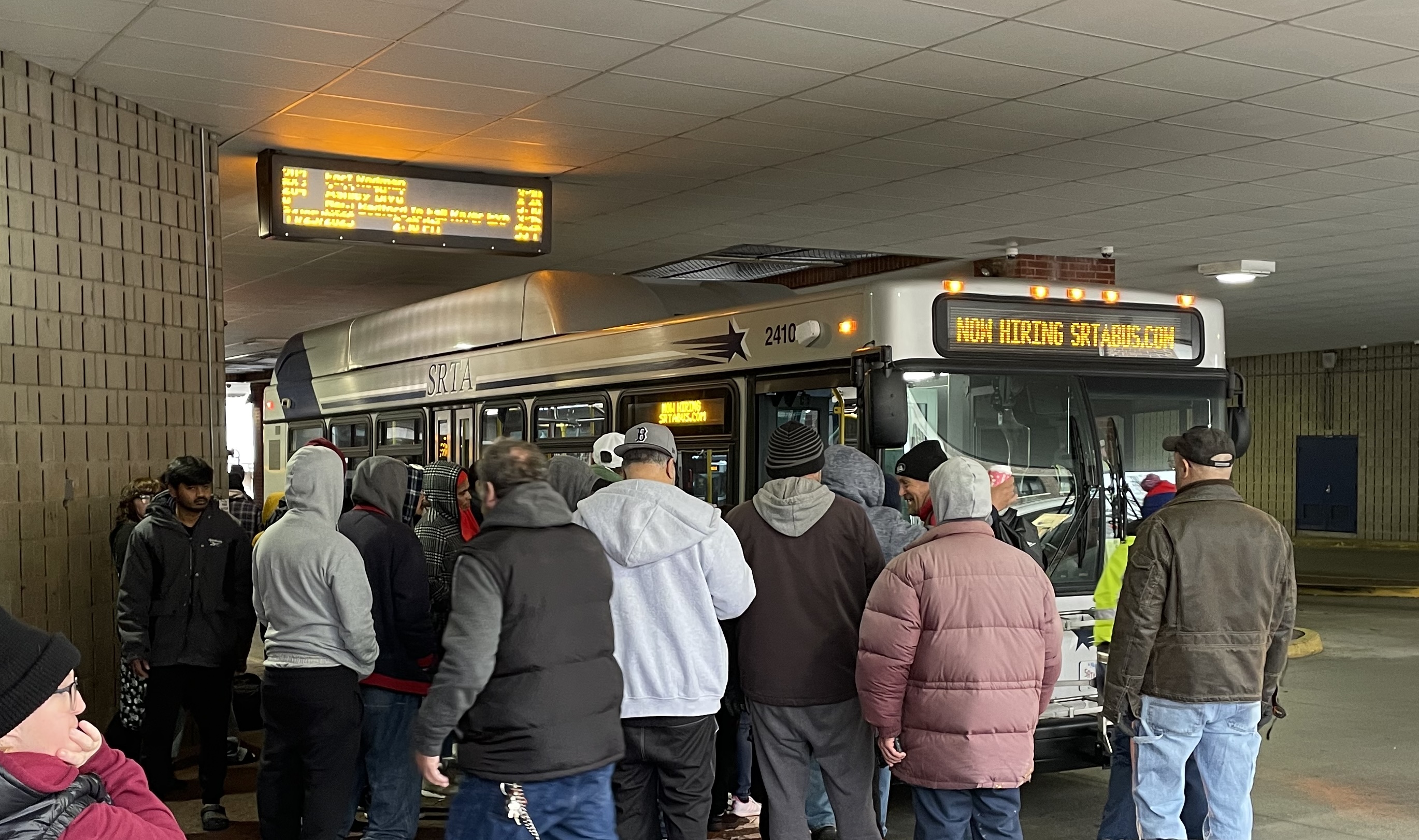Boston Mayor Marty Walsh released his updated "Climate Action Plan" this week to move the city towards its target of cutting citywide greenhouse gas pollution in half within the next decade, and the plan makes it clear that the city's transportation policies will need to become much, much more ambitious.
The updated climate plan shows that the city has made significant progress in reducing emissions from homes and businesses and is on track to meet its 2020 emissions goals, mostly thanks to reduced consumption of heating oil, efficiency improvements at the Kendall power plant, which supplies heat for much of downtown Boston, and the replacement of coal-fired power plants with cleaner sources of electricity across the New England power grid.
But the city's progress in cleaning up its transportation sector has lagged far behind. "Transportation emissions in Boston have held
steady," the report acknowledges. While individuals are driving less on a per-capita basis, population growth means that the total amount of driving is increasing.

The city's GoBoston 2030 report, adopted in 2017, set a goal of cutting car traffic in half by 2030, and making up the difference in increased transit use, bike riding, and walking trips. But the final GoBoston 2030 report always referred to those targets with a qualifier, calling them "aspirational" targets.
That adjective is gone from discussions of future transportation mode splits in the city's latest Climate Action Plan, which now states explicitly and without qualifiers that "the City’s targets include cutting drive-alone trips by more than half, increasing public transit ridership by more than a third, increasing biking rates fourfold, and doubling walking rates."
"As a coastal city, Boston is on the frontlines of this global crisis and we understand the urgency to act," said Mayor Walsh in a statement earlier this week. "Boston is proud to join with our partners as we continue to take major steps toward our ultimate goal of carbon neutrality by 2050, and honoring the commitment we made through the Paris Agreement."
As the Boston Transportation Department, MassDOT and the state Department of Conservation and Recreation undertake major redesigns of streets like Centre Street in West Roxbury, the Massachusetts Turnpike in Allston, or Memorial Drive in Cambridge, it will be incumbent for climate and street safety advocates to hold traffic engineers accountable to city and state greenhouse gas reduction goals.
Designing streets under the assumption that motor vehicle traffic will continue to remain at current levels more or less indefinitely is tantamount to an assumption that Boston will fail to meet its climate policy goals.






